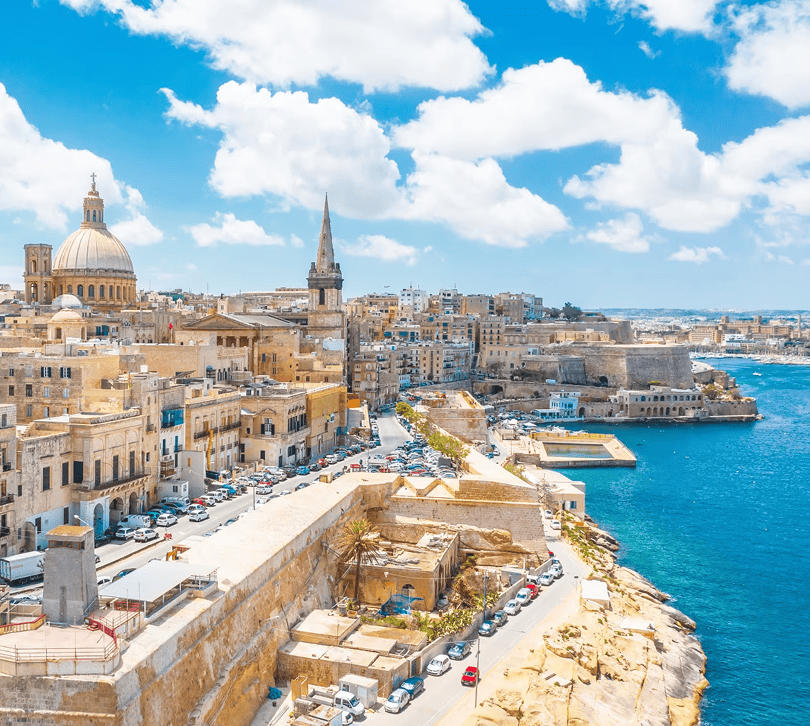Portugal’s NHR program was widely utilized, and many made the most of it by registering a company in Malta. The Portuguese parliament gave its approval to the discontinuation of the Non-Habitual Resident (NHR) Tax Regime, therefore ending the NHR Tax Regime as it currently stands. Portugal’s state budget for 2024 has already been authorized, and this decision is final.
Remaining Opportunities for NHR Beneficiaries
Those who seek to take advantage of the Portuguese attractive tax policy are still eligible to do so as beneficiaries of the Non-Habitual Resident (NHR) Tax regime; however, can do so until the end of 2024 if they match any of the following criteria:
- Promise or employment contract, promise or secondment agreement signed by 31st of December 2023, whose duties must take place in Portugal;
- Lease or other contract granting the use or possession of the property in Portuguese territory concluded until 10th of October 2023;
- Reservation contract or promissory contract for the acquisition of real rights over property in Portuguese territory concluded by 10th of October 2023;
- Enrolment or registration of dependents at an educational establishment domiciled in Portuguese territory, completed by 10th of October 2023;
- Residence visa or residence permit valid until 31st of December 2023;
- Procedure initiated by 31st of December 2023, for granting a residence visa or residence permit, with the competent authorities.
Since its implementation in 2009, the Non-Habitual Resident (NHR) Tax Regime has served to elevate the nation’s profile internationally by attracting the brightest professionals and investors from around the globe. Furthermore, it made it possible for people to obtain a special tax regulation for 10 years, with a 20% tax rate applied to category A (dependent) and B (independent) income, or even completely exempt private pensions, for those who choose to have tax residency in Portugal. Today, the policy has helped more than 10,000 people, demonstrating its enormous success.
Key Takeaways
Beneficiaries of NHR are entitled to a fixed rate of 20% on income from Portuguese source incomes, as well as an exemption on the majority of international income. This is a substantial decrease from the typical rates, which can reach 48%. In addition, there is no minimum stay requirement, and the nation is regarded as belonging to the EU’s “white-listed” tax environment. Better yet, there is no wealth tax on gifts or inheritances made to members of the direct family, and are free from taxes. Finally, in this case, free remittance of funds to Portugal is allowed. Visit the Portuguese government’s finance website for further details.
Being Aware of the Benefits of Double Taxation Agreements
The Non-Habitual Resident (NHR) tax regime in Portugal makes it easier for individuals to take advantage of Double-Taxation Agreements (DTAs). The majority of income from foreign sources is not subject to taxation for NHR persons because of these DTAs, which offer a flexible solution that permits money earned overseas to be taxed in the nation of origin. Portugal has already made agreements with 79 nations, including Malta, to account for this, and it is determined to abide by the OECD model tax convention in the absence of an agreement. This implies that people who have NHR status are able to take advantage of these arrangements and get overseas income without having to worry about having to pay taxes on it.
Why would NHR beneficiaries register a company in Malta?
Malta is a renowned business destination with a well-established professional and financial services industry. Business-minded entrepreneurs might think about registering a company in Malta for a variety of reasons, including its welcoming community, enjoyable climate, breathtaking scenery, and enriched culture. Beyond just its beauty, Malta is a great place for entrepreneurs because of its many practical and lifestyle benefits.
Digital nomad’s tax in Malta
The corporate tax system in Malta offers advantageous tax reliefs and schemes in an effort to attract firms to the island. Malta is a great place for businesses to establish a holding company or trading corporation because of its excellent position inside the EU and the abundance of opportunities it presents for efficient tax planning. Companies that are based in Malta and are managed there are liable to a 35% global tax. However, with Maltese tax law provisions, this can be lowered to an attractive 5%. This is accomplished through a tax return program that enables overseas investors in a company incorporated in Malta to receive dividend payments equal to up to 6/7th of the taxes paid. As a result, just 5% of income is taxed effectively.
Let us help you register a company in Malta!
The significance of abiding by local laws is something that our team of experts at Papilio Services are aware of. For this reason, we provide our clients with a choice of registered office space in Malta. This will not only help them comply with legal standards but also remove the need for expensive office space when registering a company in Malta.
Grab the opportunities!
Setting up a business in Malta is a great method to take full advantage of NHR. The procedure is simple, affordable, and offers a number of tax benefits, making it a desirable choice for expats in Portugal. Although we are unable to offer advice on Portugal NHR applications, we are more than pleased to collaborate with your current Portugal tax advisor, or we can connect you with one of our trusted partners.
Let’s get in touch and arrange a free consultation if you’d like more information about how we can assist you with registering a company in Malta or any other relevant matters; we will be happy to help.

















